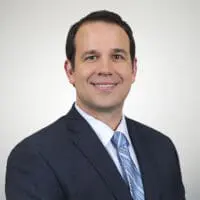Health Law Checkup
Protecting Vulnerable Adults While Protecting Their Physicians – A Proposed Statutory Amendment
Arizona’s Adult Protective Services Act (A.R.S. §§ 46-451 – 503) was enacted to protect incapacitated adults from caregivers who endanger their lives or health through abuse, neglect, or exploitation. Claims arising out of health care providers’ ordinary negligence, on the other hand, are covered by the Medical Malpractice Act (A.R.S. §§ 12-561 – 573). Although legislative history is sparse, there is evidence that the legislature never intended APSA to encompass medical malpractice actions. This position is supported by the legal meanings of the terms “neglect,” as used in the APSA, and “negligence,” which is required for malpractice liability. Although they share a common root word, the legal definitions of “neglect” and “negligence” are not the same. In the health care context, negligence is the “failure to exercise the degree of care, skill and learning expected of a reasonable, prudent health care provider in the profession or class to which he belongs within the state acting in the same or similar circumstances.” “Neglect,” however, includes “[t]he failure to give proper attention, supervision, or necessities, to an extent that harm results or is likely to result.” This is also reflected in APSA’s definition of neglect, which refers to the withholding of food, water, medication, or other services necessary to maintain a reasonable standard of living. Likewise, “abuse” connotes objective, harmful wrongdoing. Examples of abuse include “deprivation of food or medication, beatings, oral assaults and isolation.”
In 2003, the Arizona legislature attempted to explicitly make APSA and MMA mutually exclusive. Instead, an amended version of the original bill limited liability under APSA to the medical director of a facility where a vulnerable adult lived and to the vulnerable adult’s primary health care provider at the facility. Prior to the Delgado decision, a court-created four-part test created an additional hurdle for plaintiffs seeking to bring a medical malpractice claim under the APSA.
In Delgado, the Court overturned the four-part test and held that a physician could be liable under the APSA for ordinary negligence. The Court recognized that its holding reflects significant overlap between the APSA and the Medical Malpractice Act, but reasoned that the overlap is justified by the broad language of the APSA. The Court went on to invite the legislature to amend the APSA if it believed the scope of APSA should be limited.
The legislative fix suggested by the Court can be accomplished through two minor amendments to the definitions under the APSA. First, the phrase “negligent acts or omissions” can be removed from the definition of “abuse” to make clear that this term does not encompass ordinary negligence. Second, the definition of “neglect” should be clarified to exclude claims against licensed health care providers for failure to meet the standard of care in their field. These changes would clarify the scope of the APSA as being limited to the sort of actions the law was intended to punish, without impacting the ability of plaintiffs to pursue legitimate medical malpractice claims.








